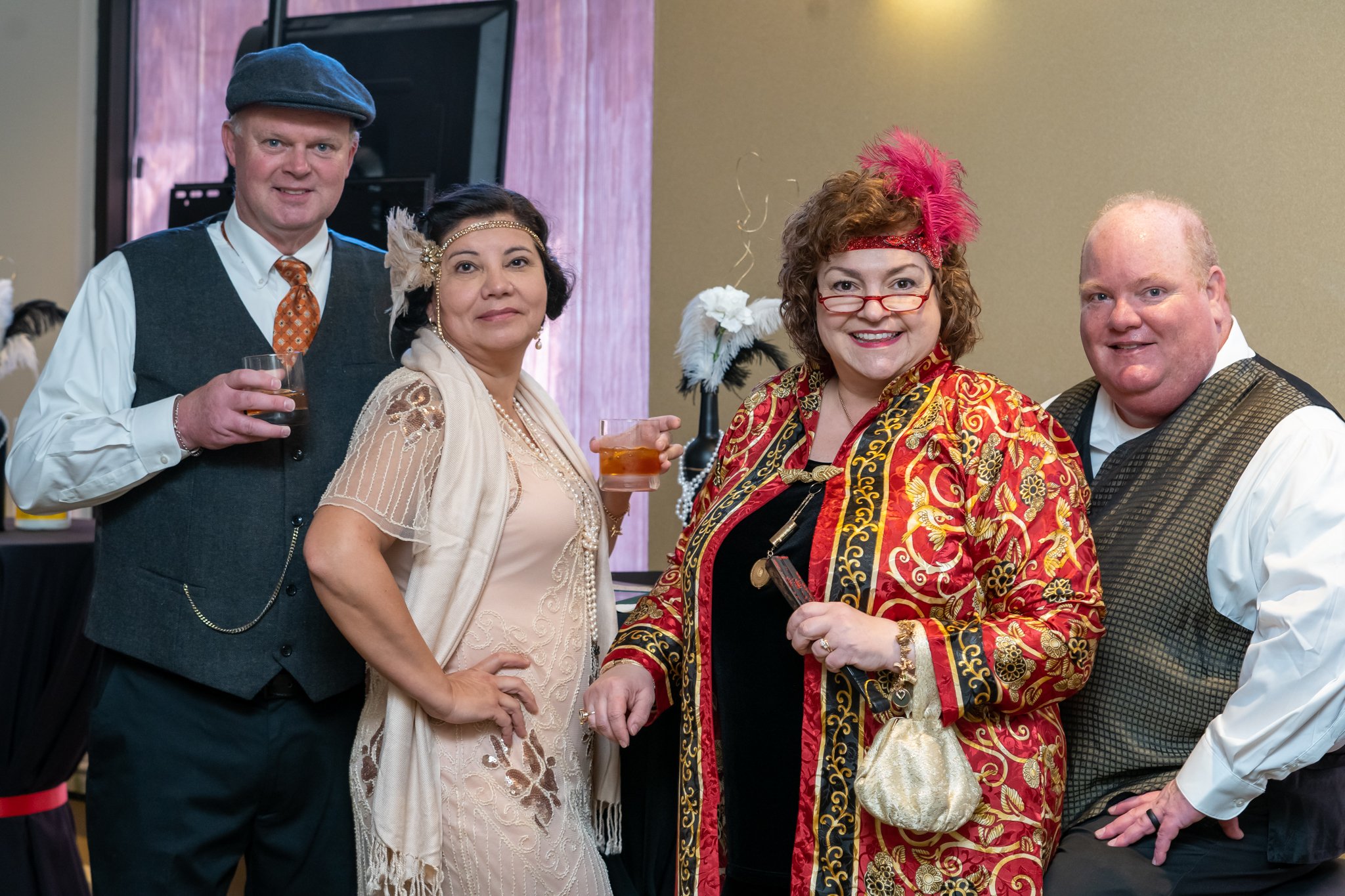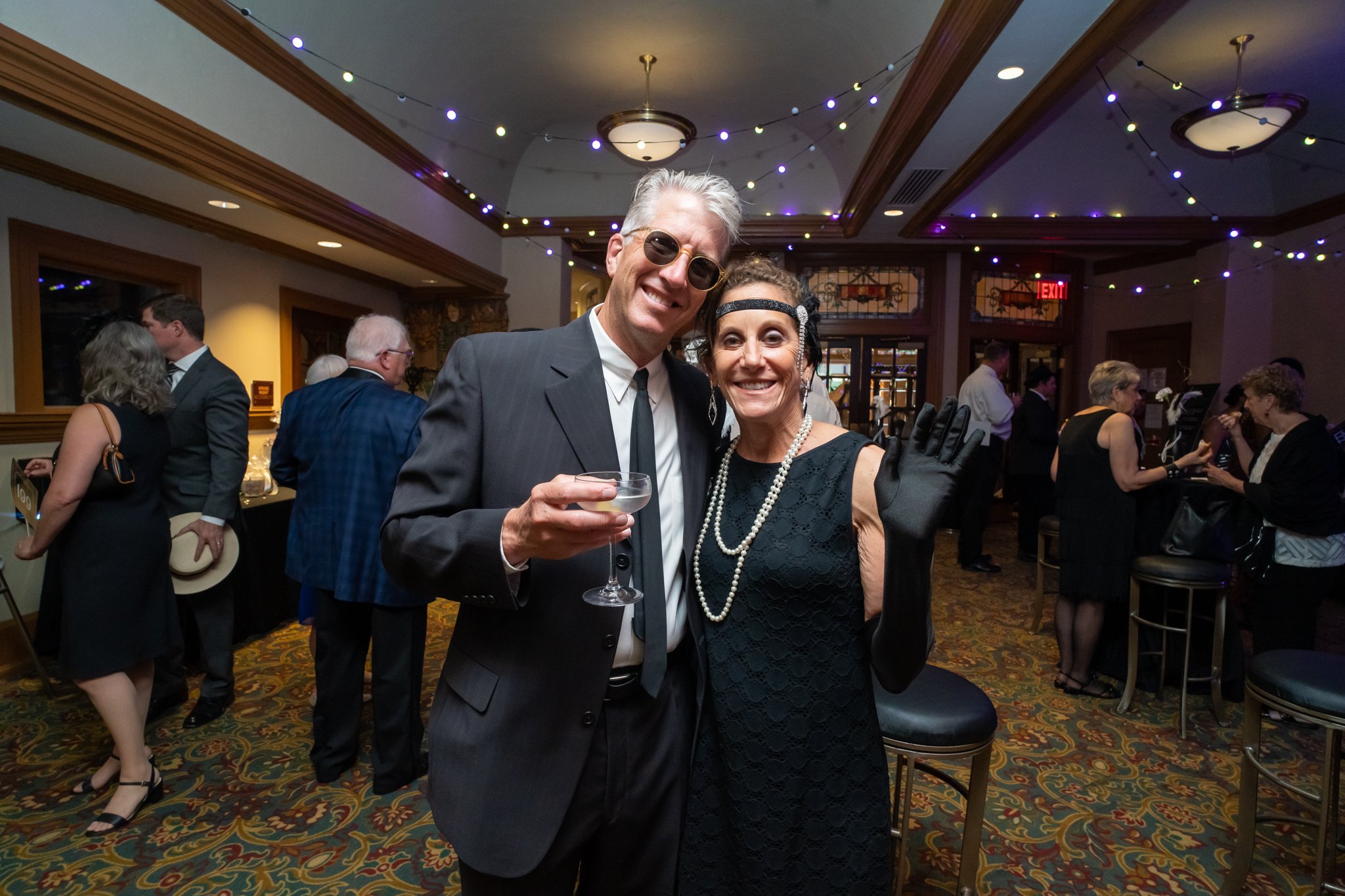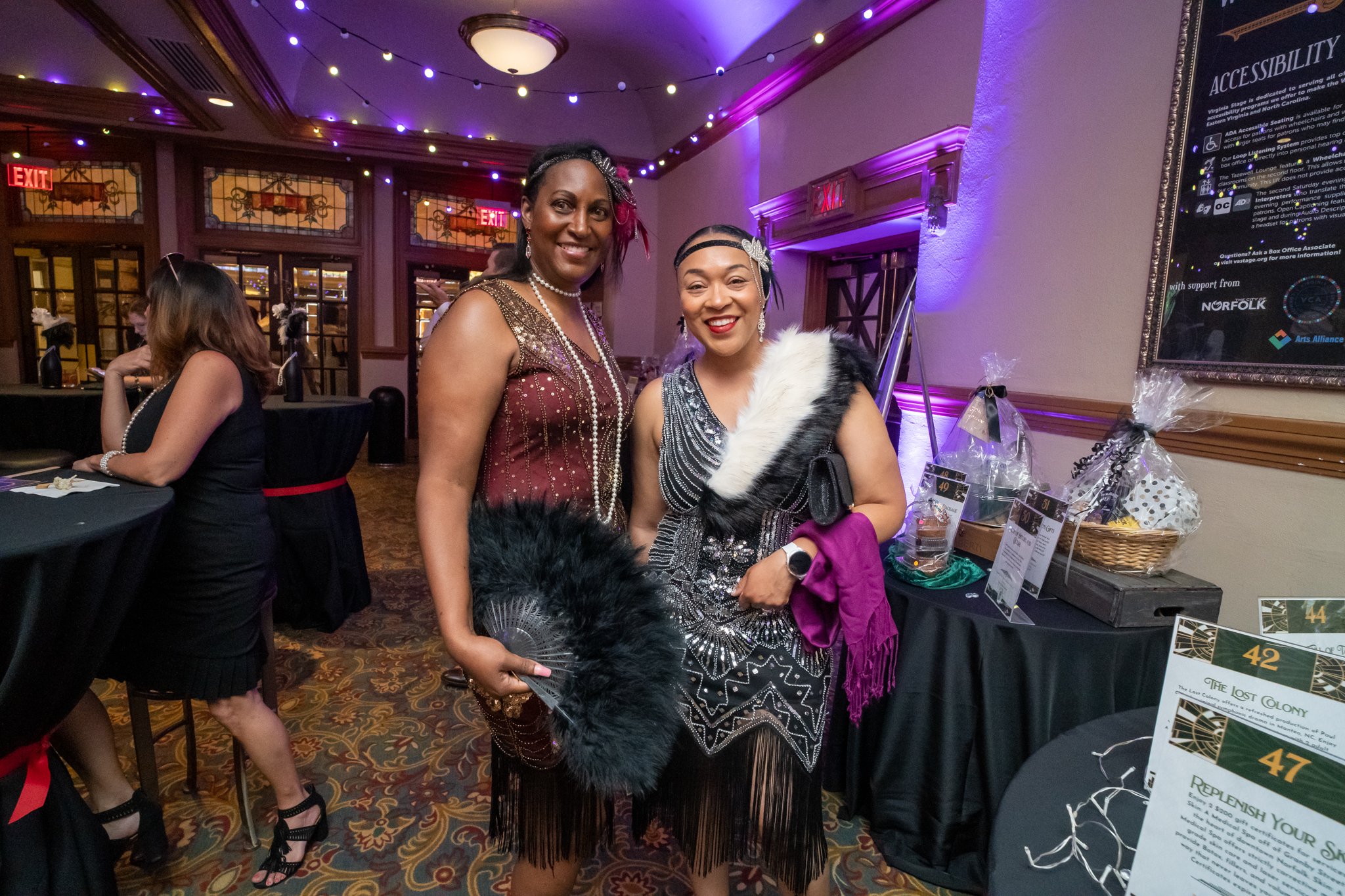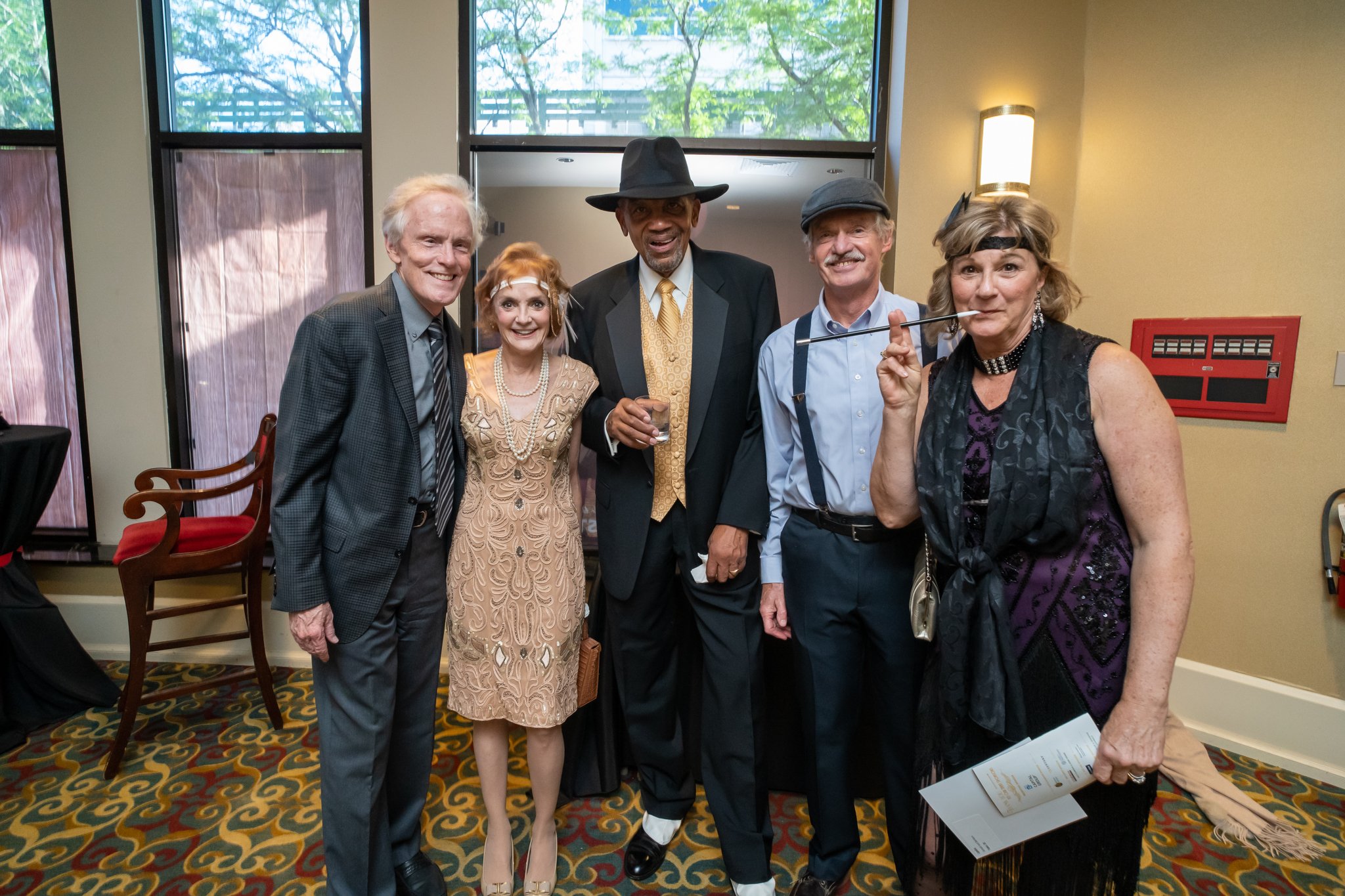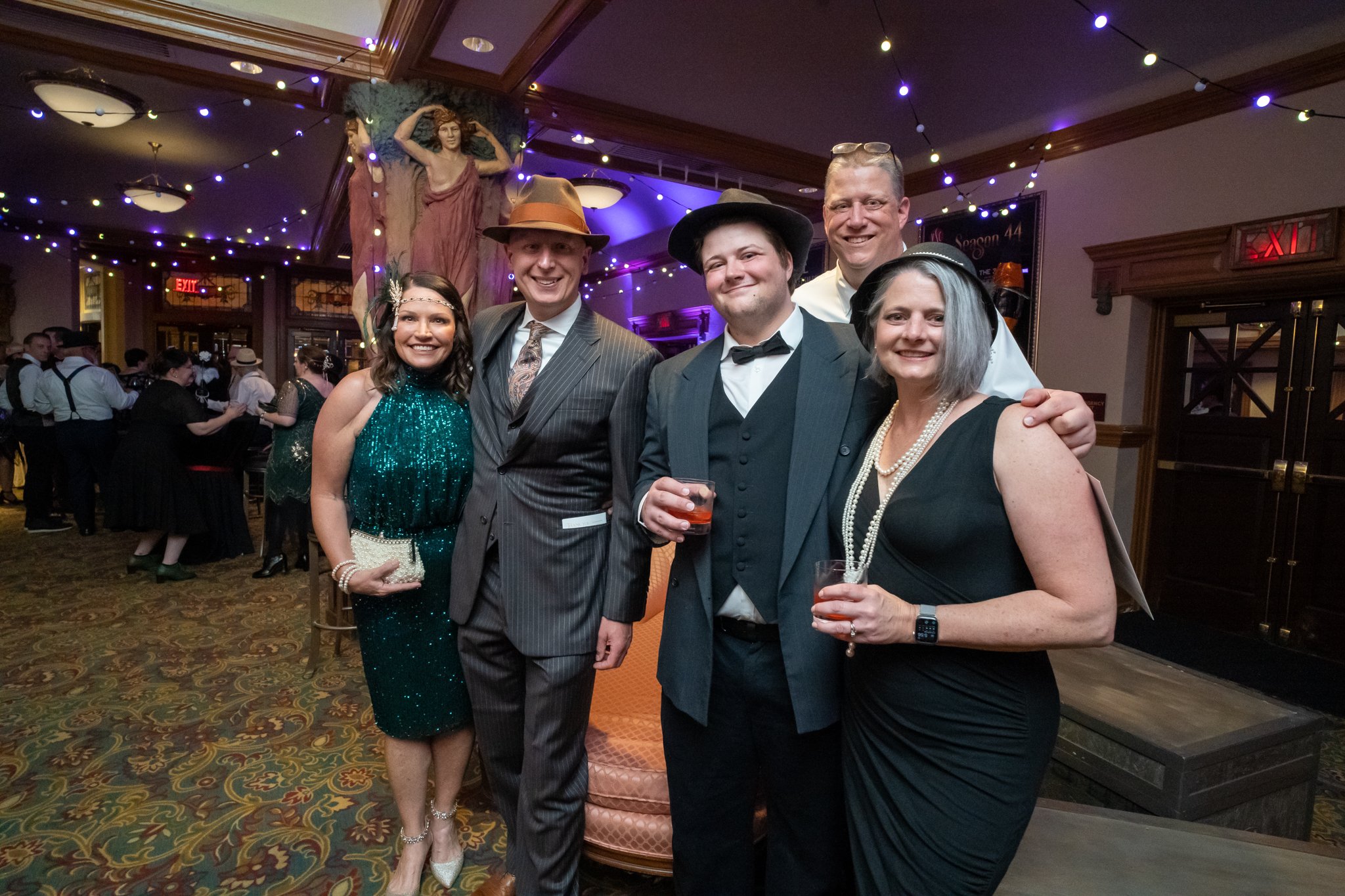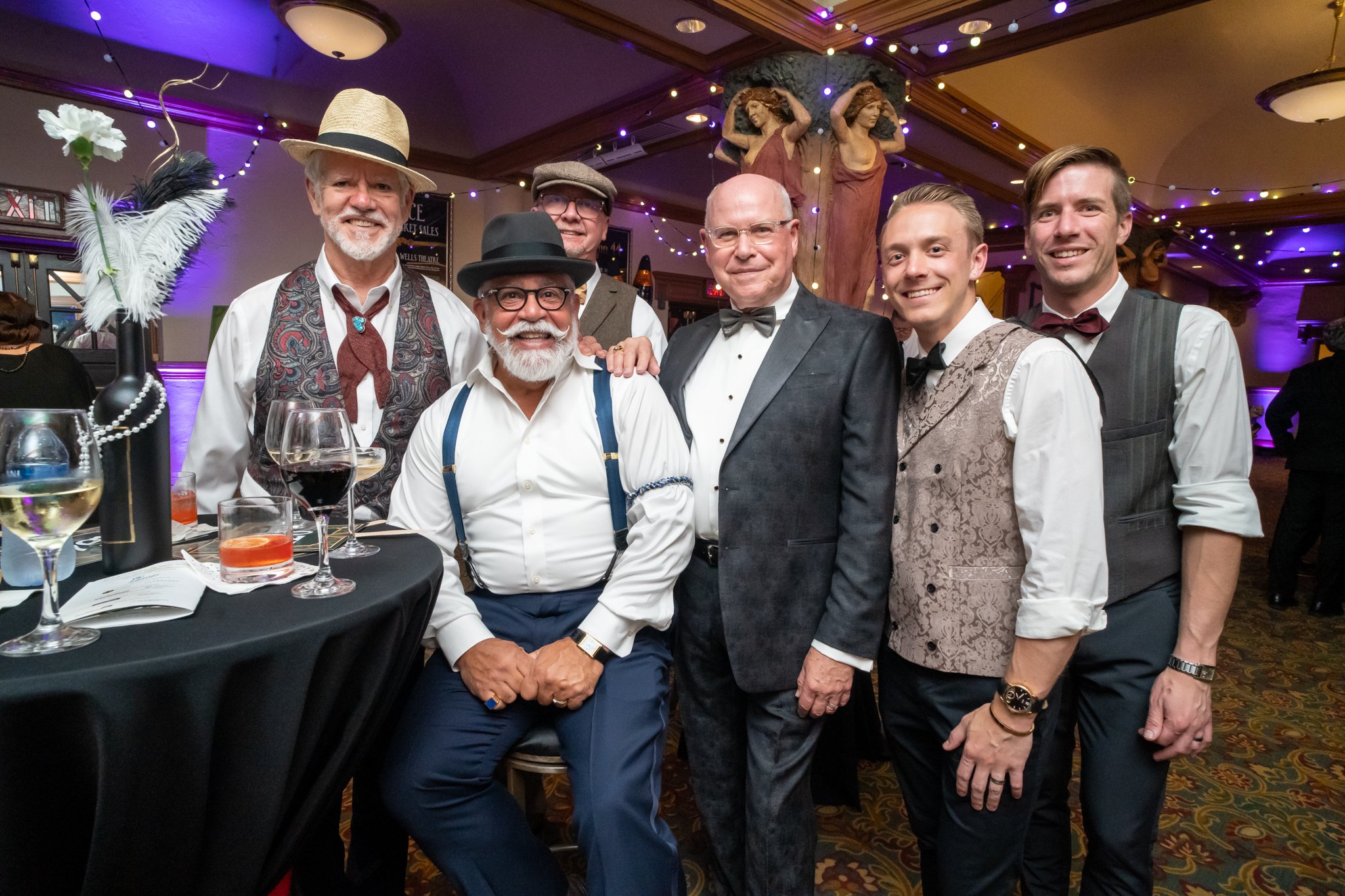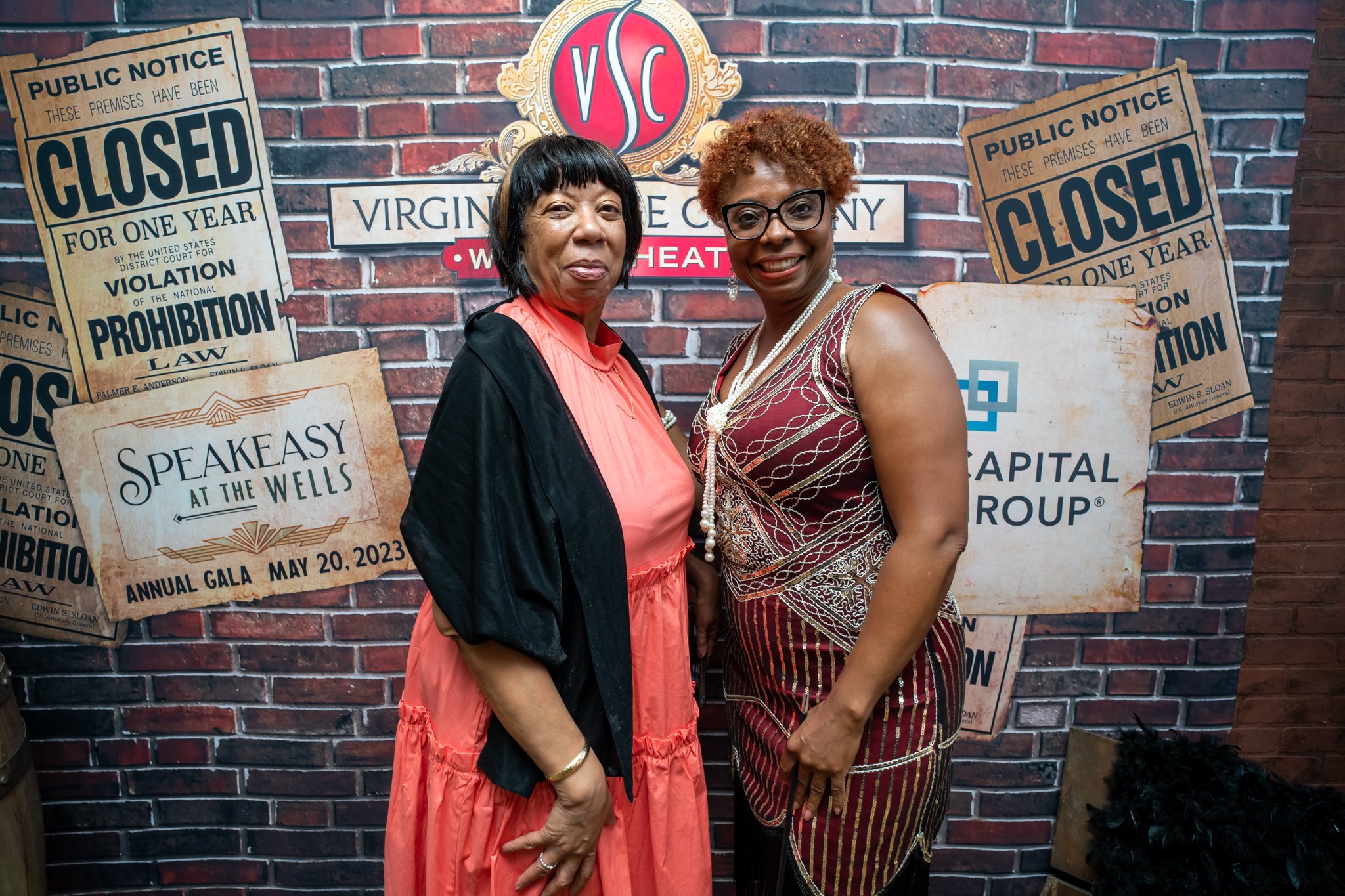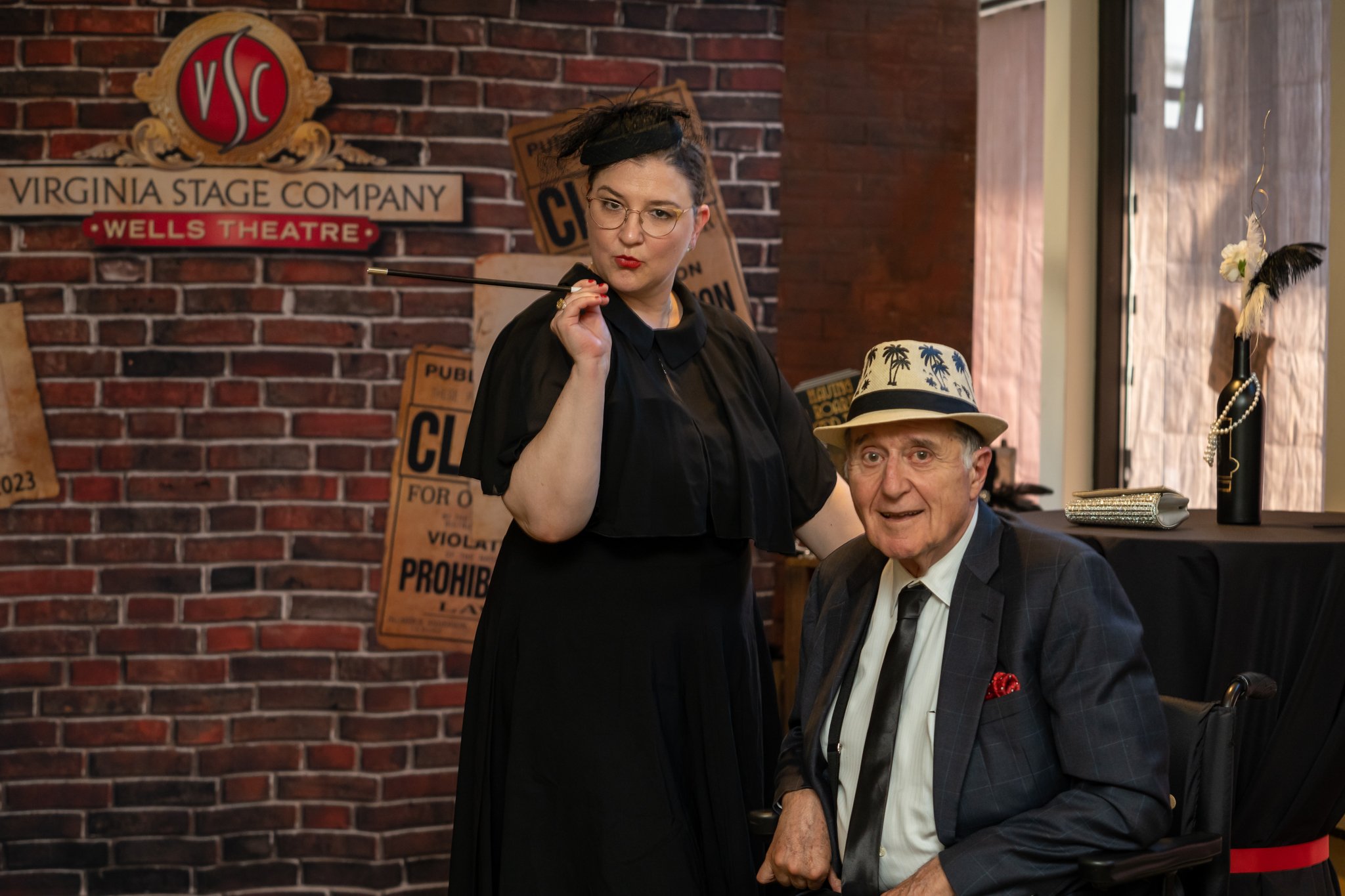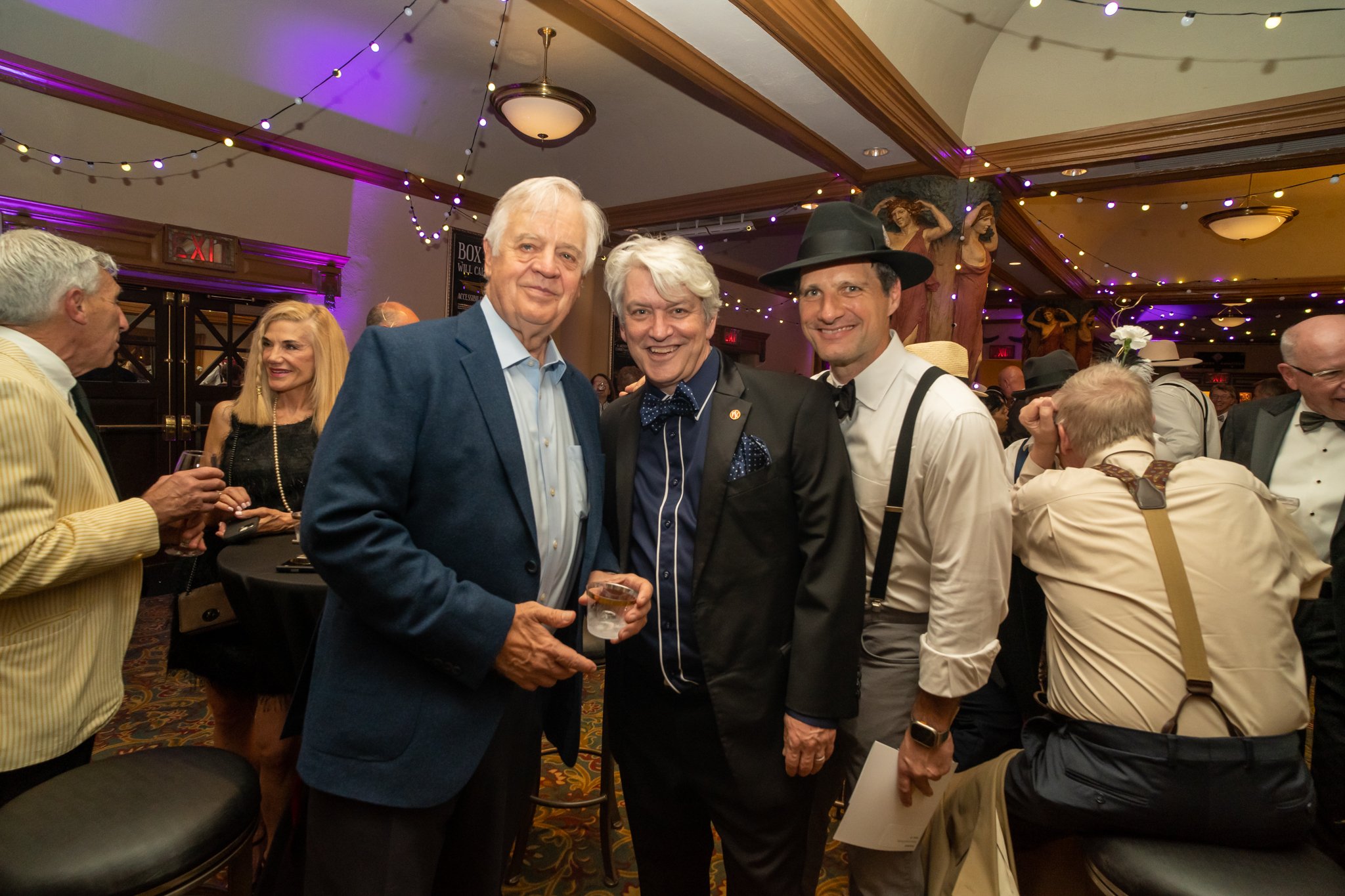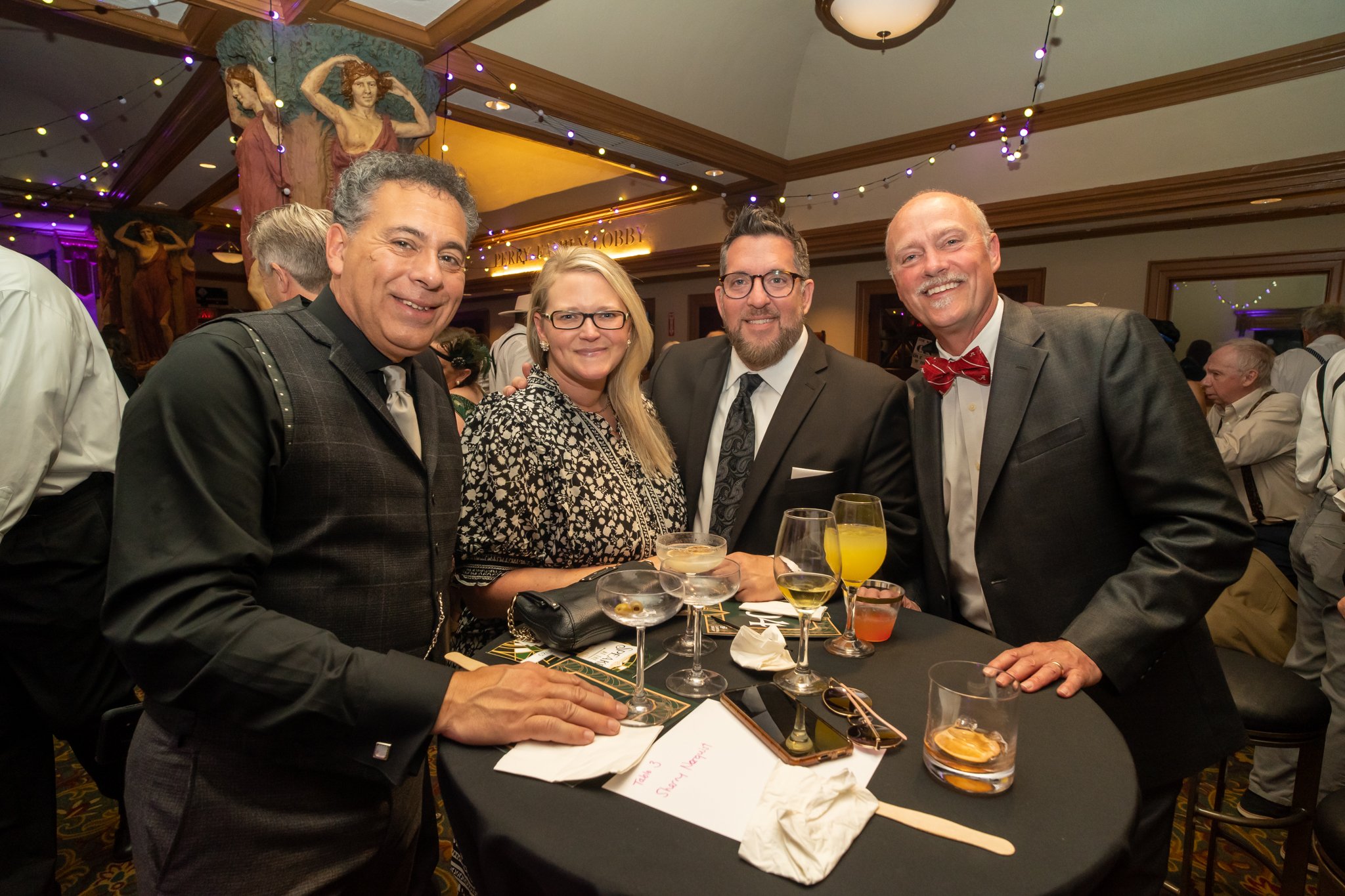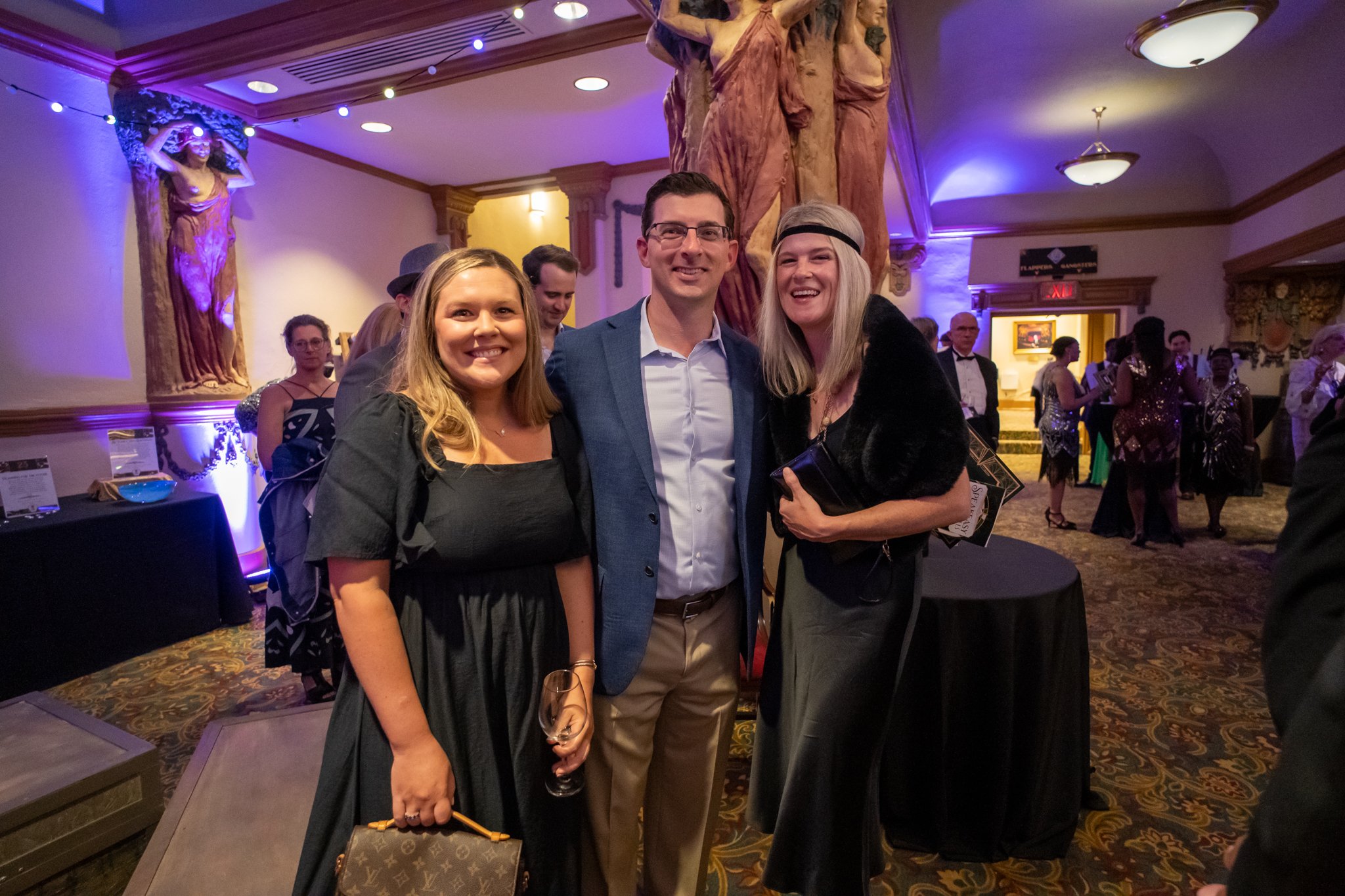Join the United Jewish Federation of Tidewater and Virginia Stage Company as for a panel discussion at the Wells Theatre.
The History Behind Fiddler on the Roof with Rabbi Michael Panitz
Fiddler: Miracle of Miracles Screening with UJFT
"Speakeasy at The Wells" Was an Uproariously Good Time!

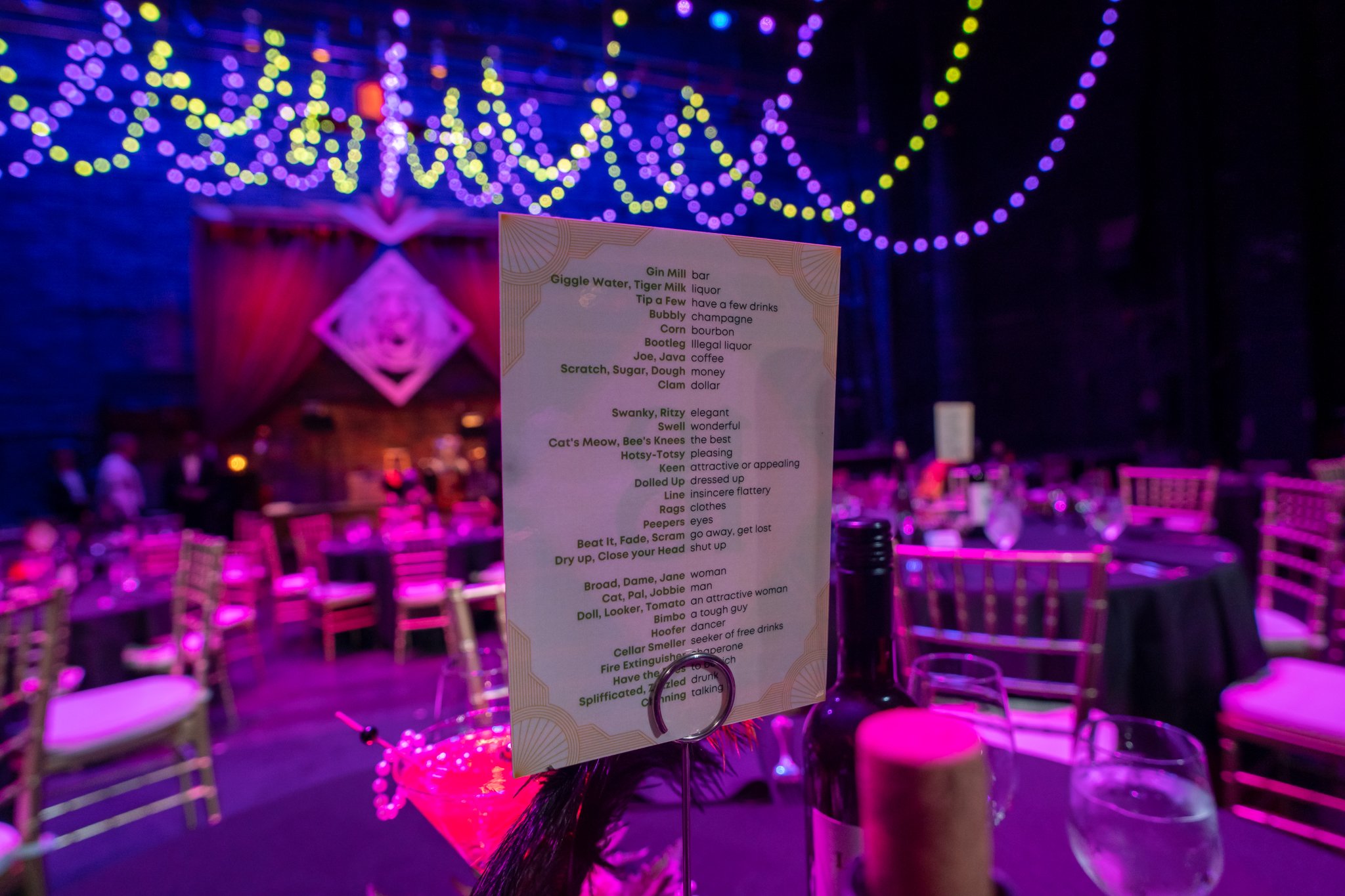
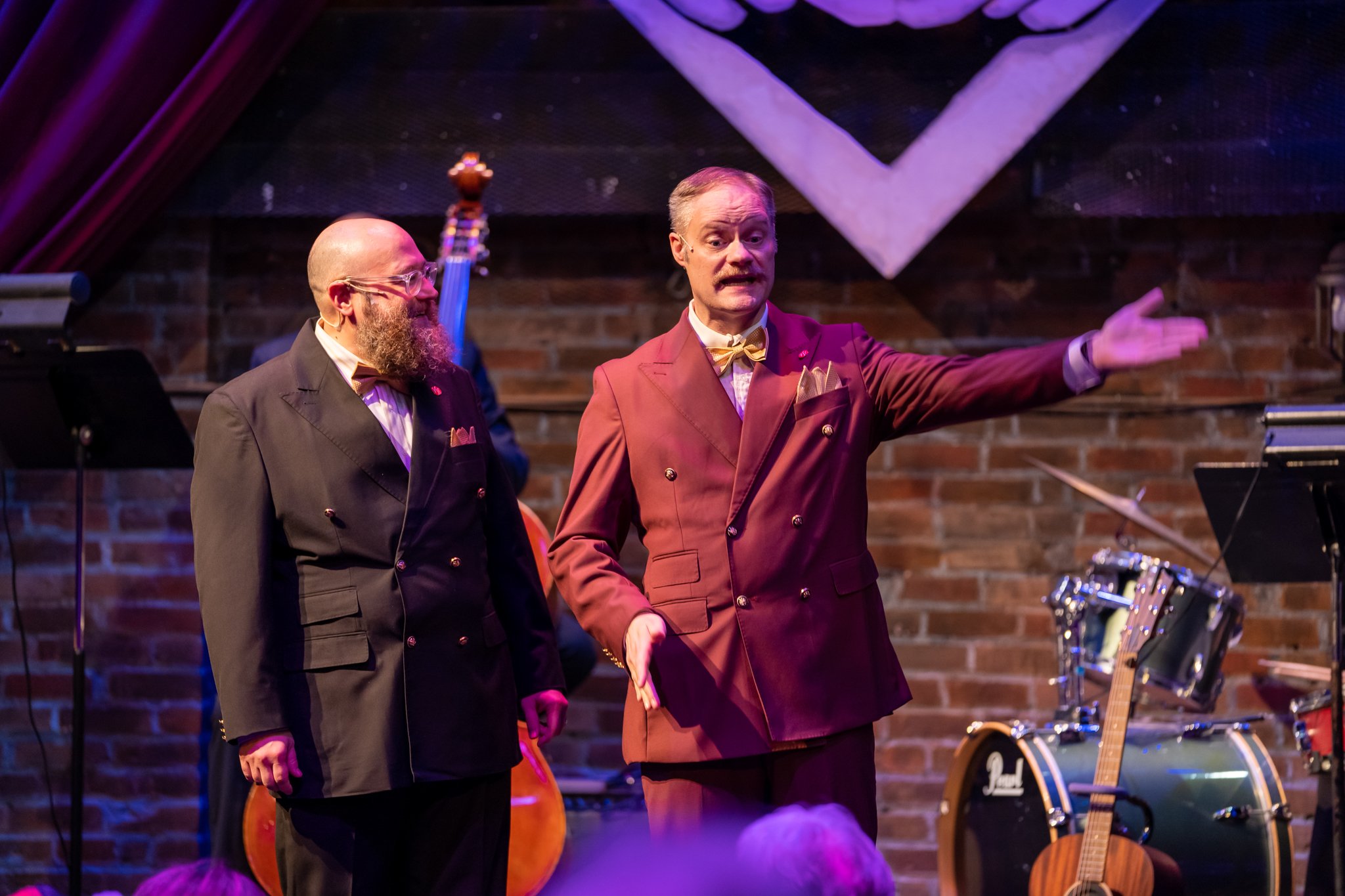

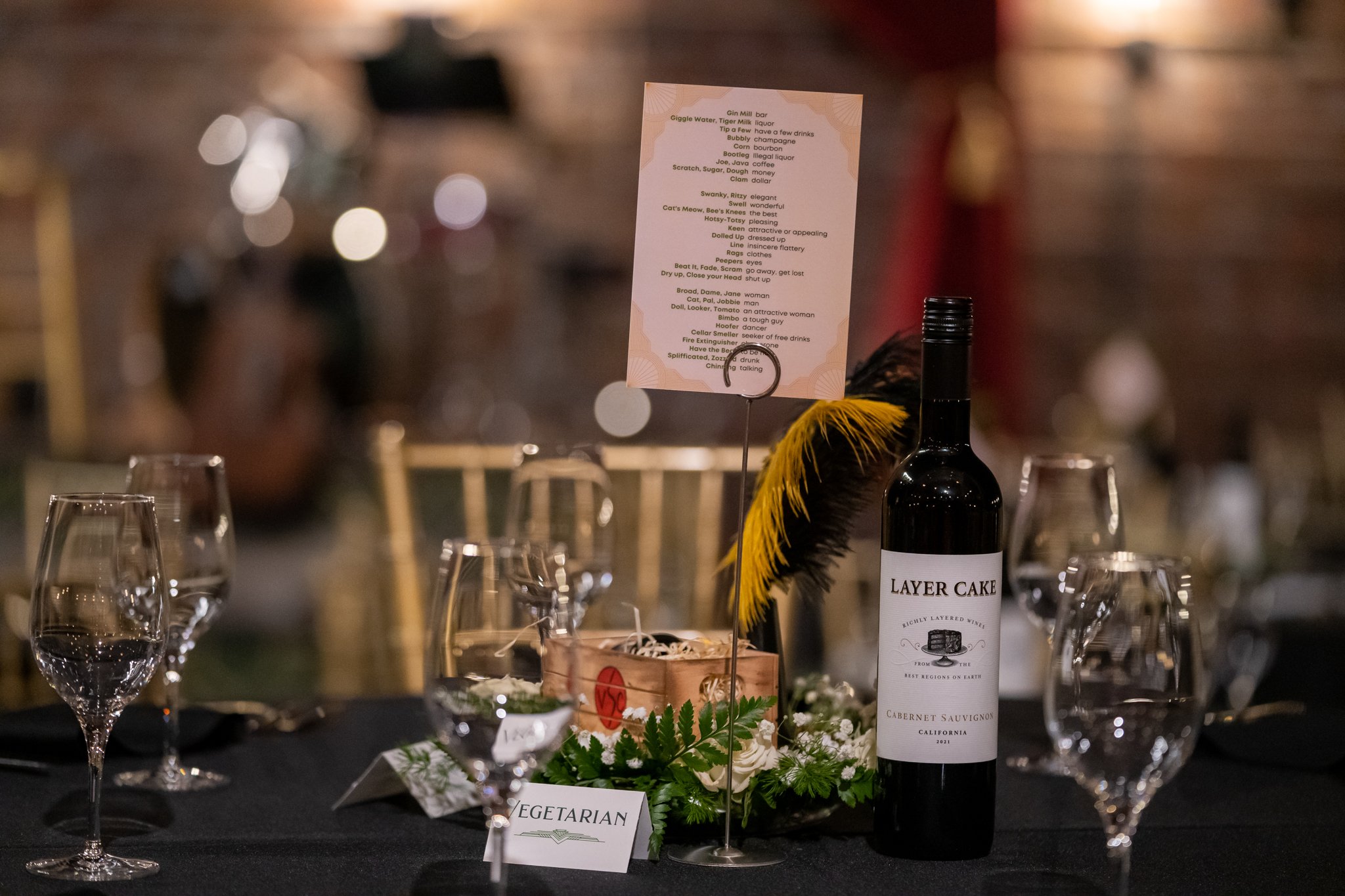
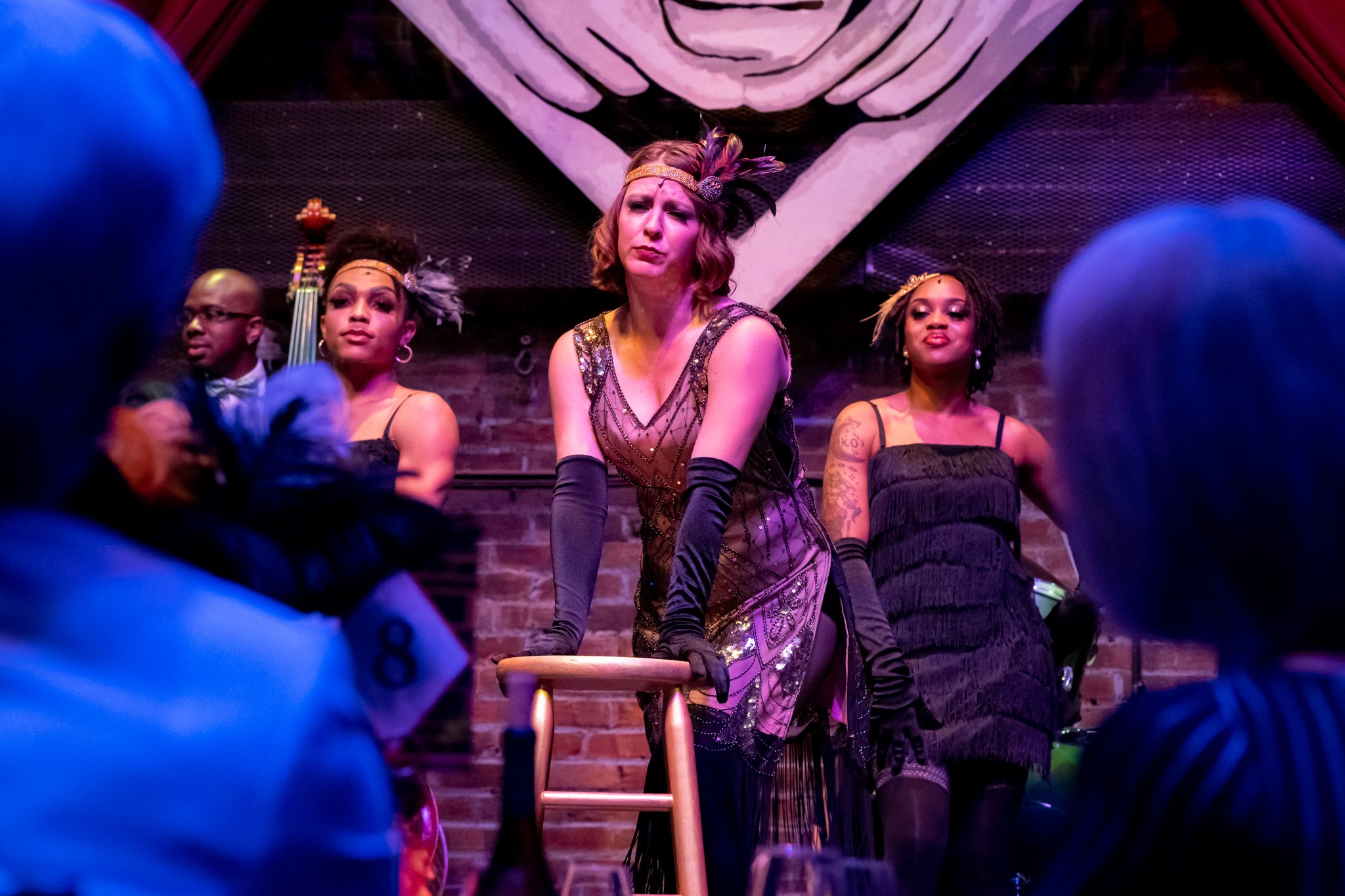

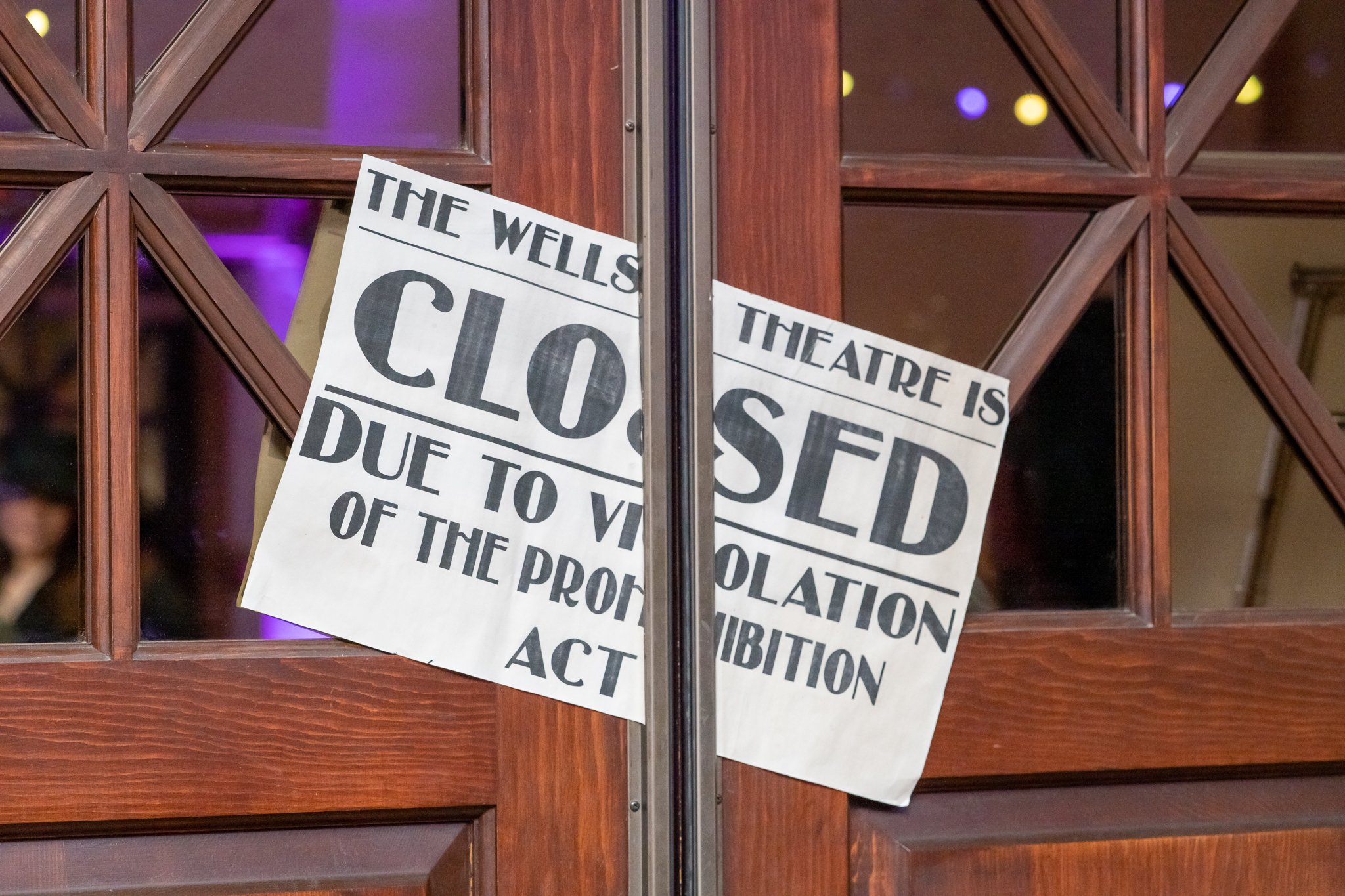
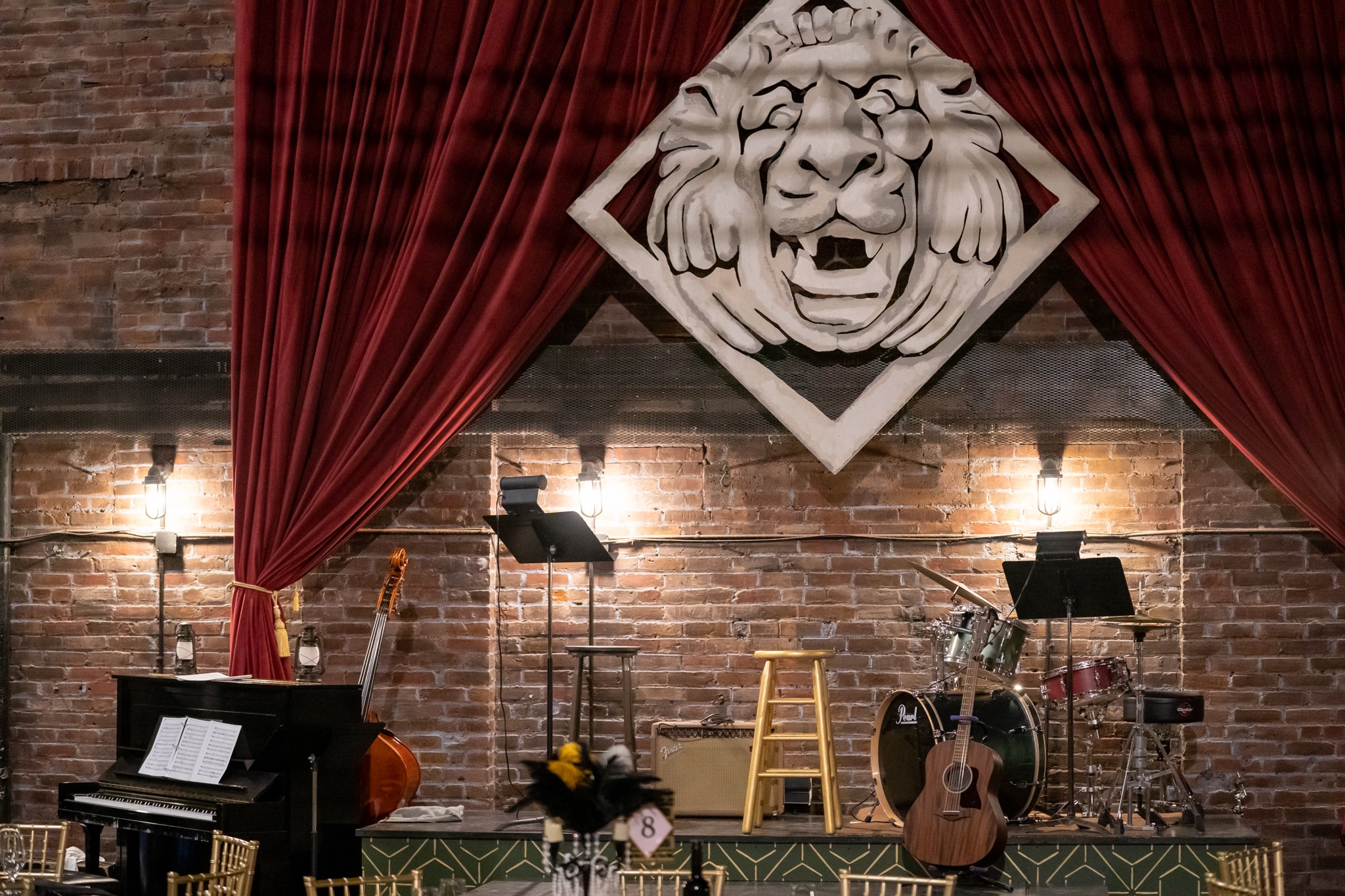
The Wells Theatre was transformed into an exciting and roaring 20’s themed Speakeasy for Virginia Stage Company’s 44th Annual Gala! Celebrating the incredible work, art, and beauty VSC brings to the Hampton Roads area year after year.
More than 150 people were in attendance to enjoy the libations, dance, laugh, and have an incredible time while exploring the theatre in an exciting new way. Hidden doors, secret hallways, and exploration of The Wells’ hidden gems brought a new kind of spirit to the Speakeasy Gala!
In addition to recognizing the amazing work and creativity of VSC the theatre company and board had the distinct pleasure of honoring Sandy Harris III; one of the founding board members and the current founding board president of Virginia Stage Company.
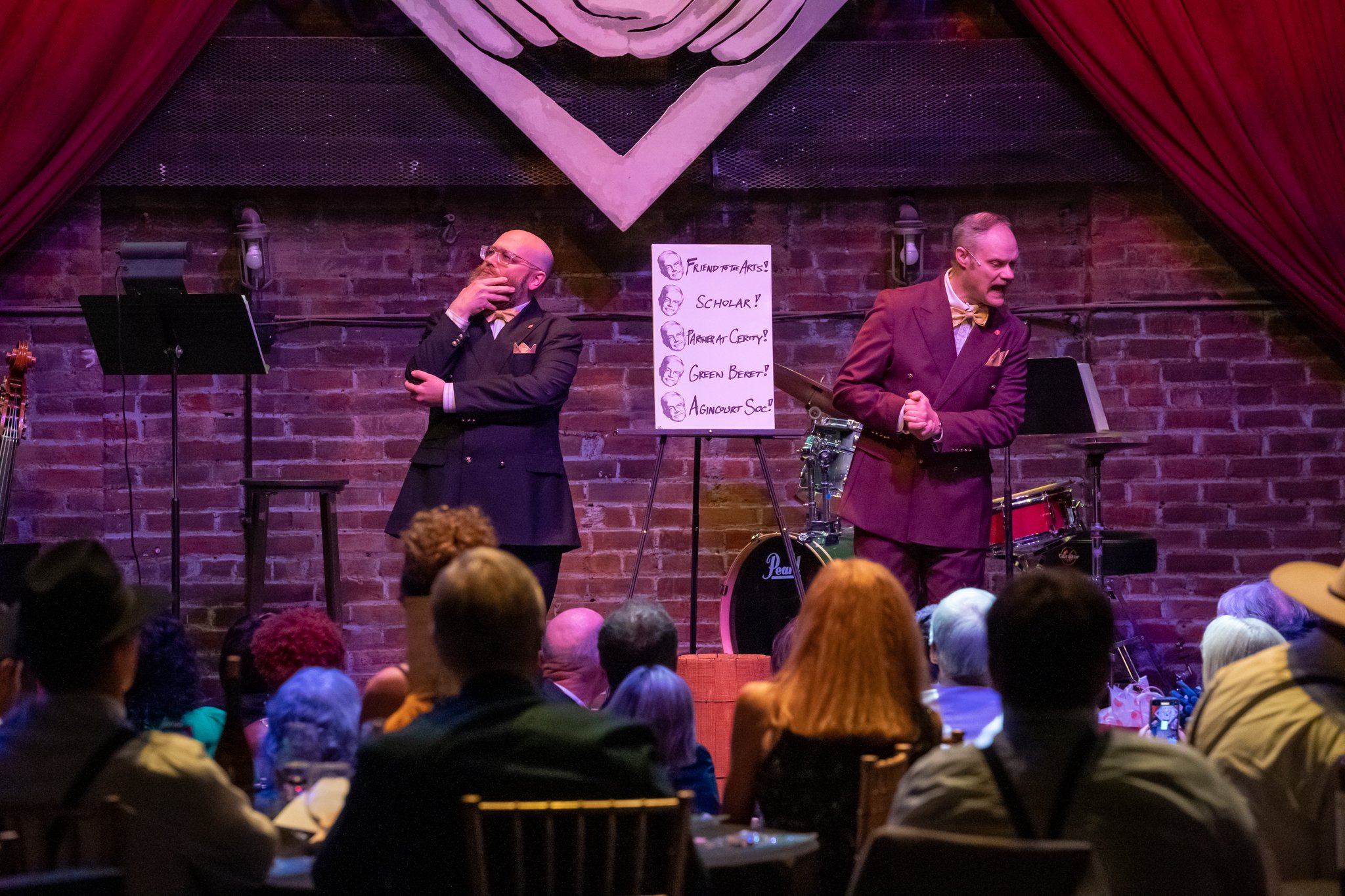
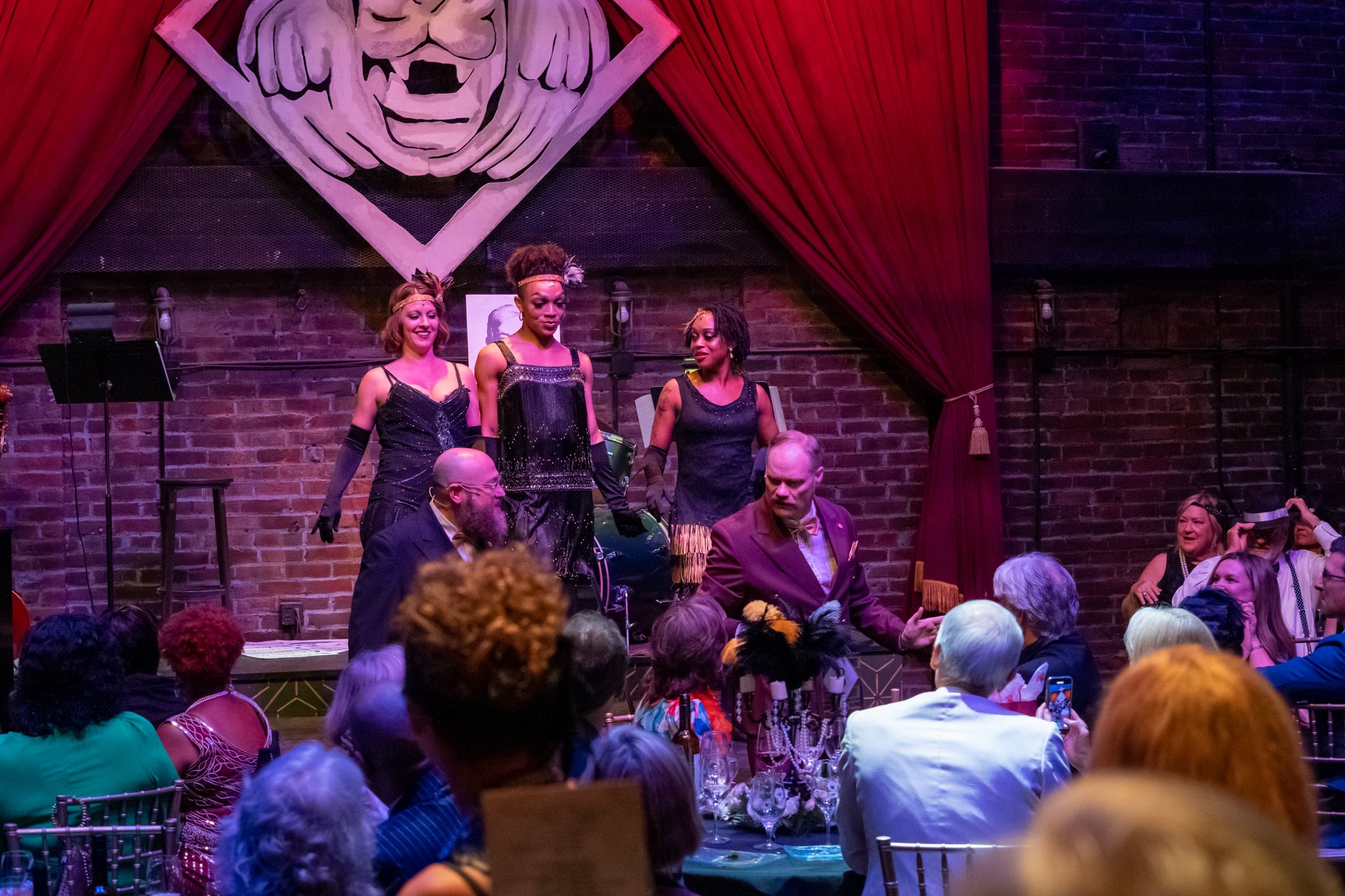
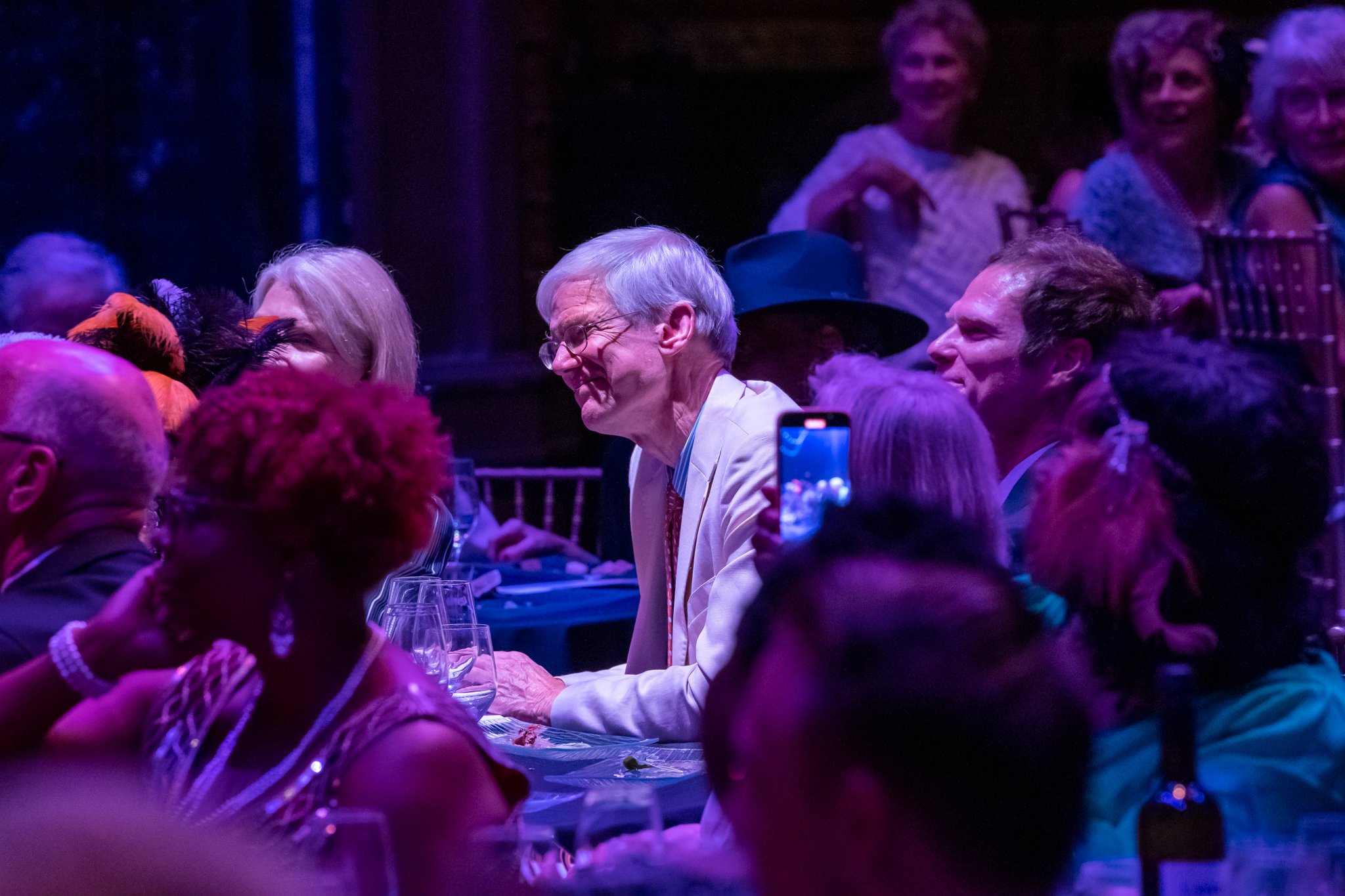
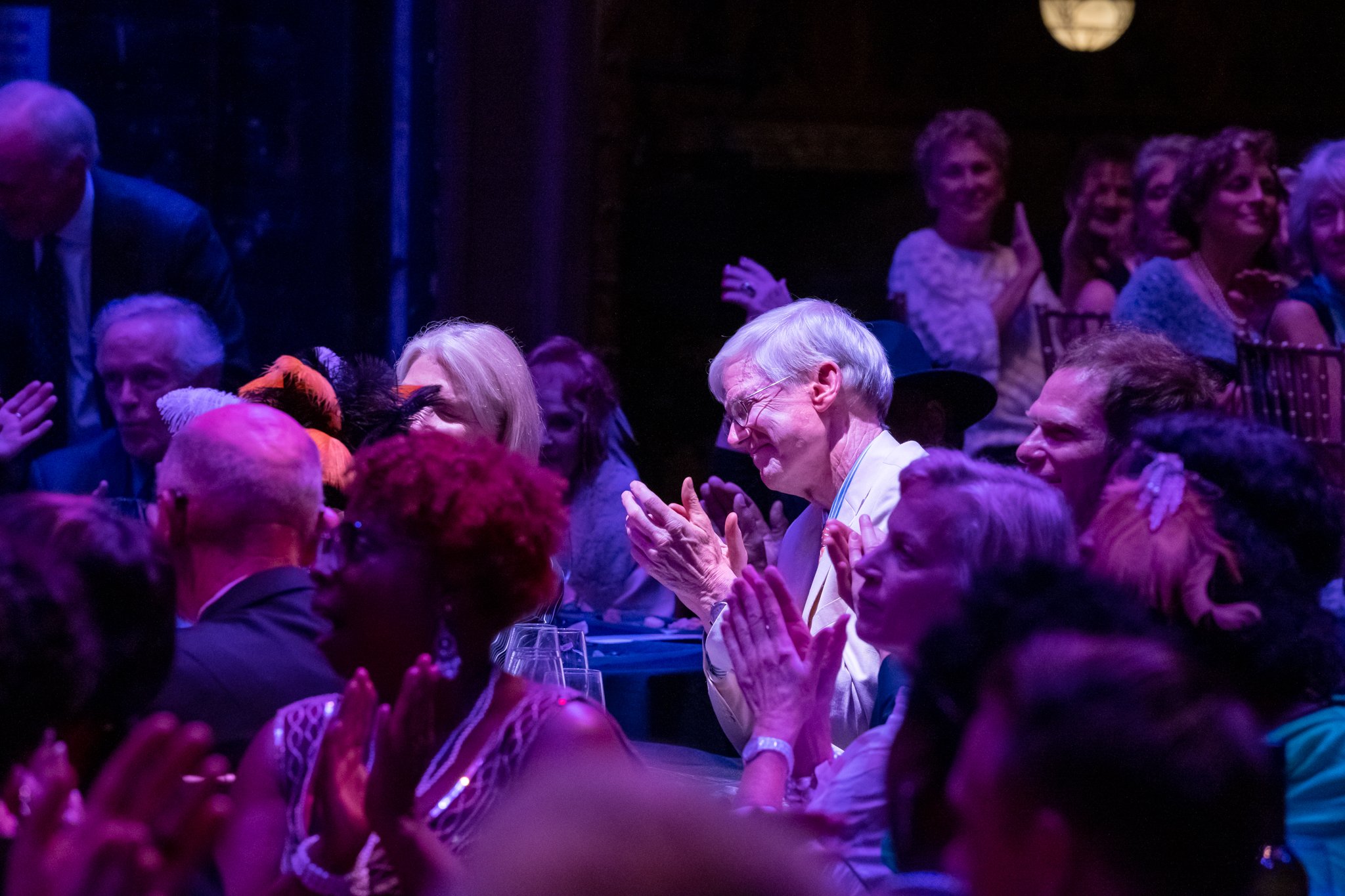
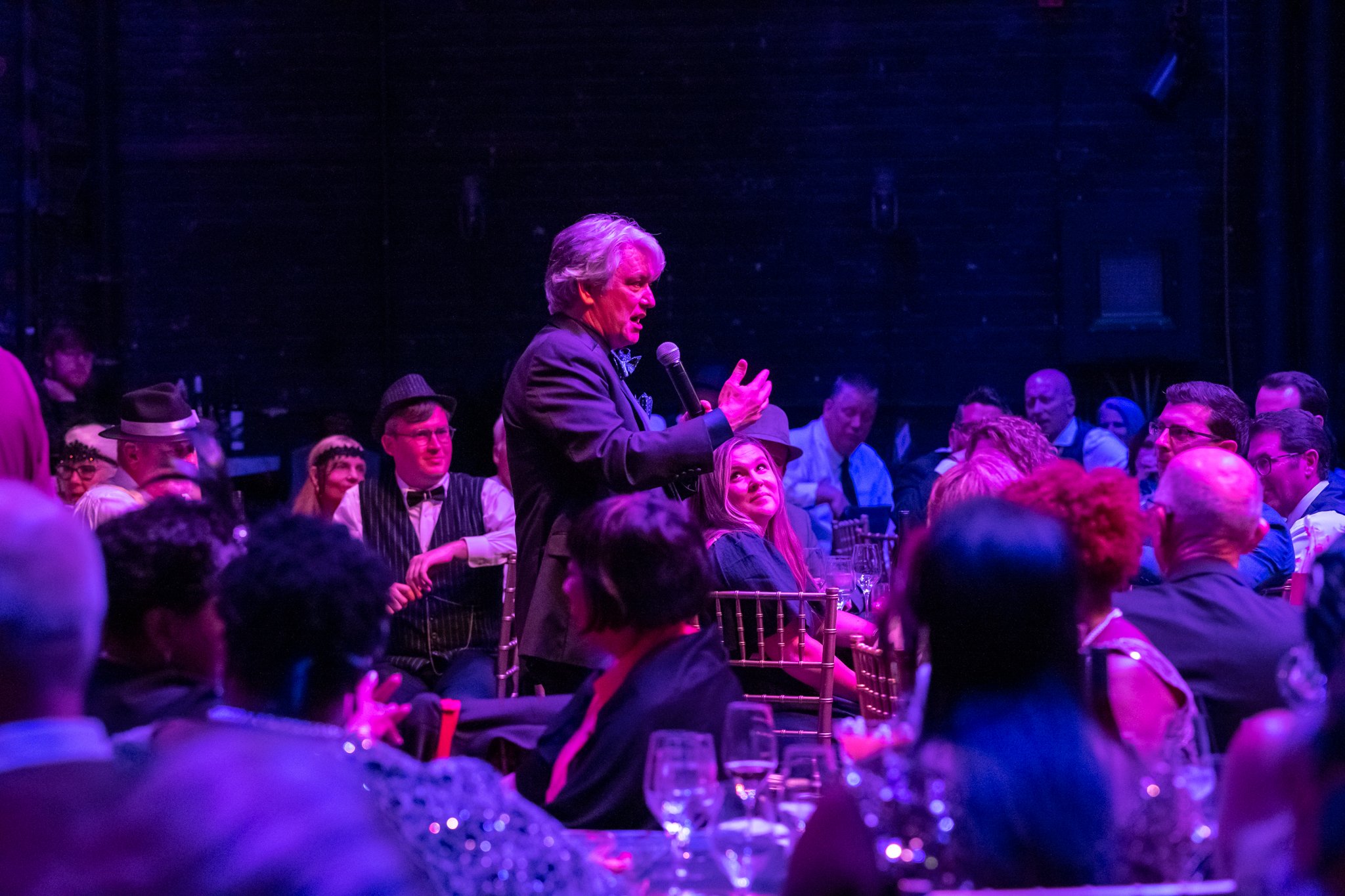
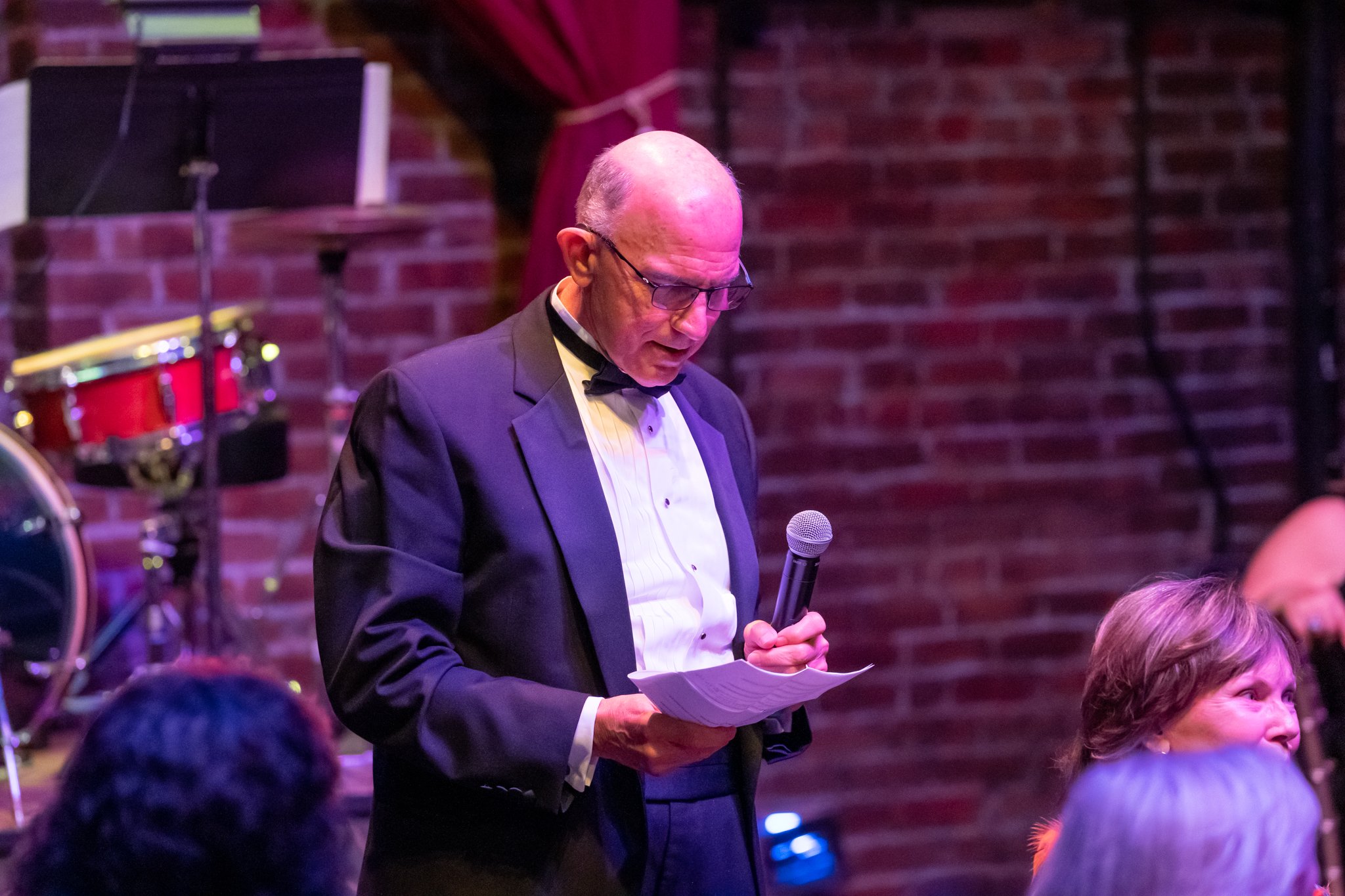
A very special thank you to Capital Group for sponsoring this wonderful event, and to the incredible Gala Committee. The incredible dinner was provided by Chef by Design, spotlight performances from incredible local Hampton Roads talent (such as Greg Dragas, Jordan Setzer, Ryan Clemens, Sam Flint, and more), and all hosted by our wonderful Emcee and Auctioneer, Blaine Stewart of WTKR.
SUFFOLK NEWS-HERALD: ‘Every Brilliant Thing’ free performances set for May 31
In cooperation with Virginia Stage Company, “Every Brilliant Thing” comes to the Suffolk Center for Cultural Arts stage Wednesday, May 31 for two free performances. The first is a school matinee at 10 a.m., with an evening performance at 6 p.m. “Every Brilliant Thing” is presented for free during May Mental Health Awareness Month…
Avenging angel Nina Simone swoops down from the heavens to sing at the Wells Theatre
By Page Laws
Virginian-Pilot Correspondent
May 11, 2023 at 7:44 am
An angel, as active in death as she was in life, is here in town and ready to fuss about justice:
Don’t tell me
I’ll tell you
Me and my people just about due.
Yolanda Rabun as Nina Simone. (Ken A. Huth)
The title of the song from which that lyric comes, “Mississippi Goddam,” also provides a less-than-subtle clue:
Nina Simone was a troubled (probably bipolar), often angry, artist, hounded out of a classical music career because of her race. But she was and is (especially as reincarnated through Sunday at the Wells Theatre by supercharged actor/singer/lawyer Yolanda Rabun) quite ready to sing her soul out in an effort to save ours, both as individuals and a nation.
The one-woman show is called “No Fear and Blues Long Gone: Nina Simone,” by playwright Howard L. Craft, and that title, too, is telling. The scared little girl who became the international singing legend was born Eunice Kathleen Waymon, in 1933, the sixth of eight preacher’s kids, about 400 miles from the Wells, down in Tryon, North Carolina. More about the Tar Heel connection later. She mostly got over being scared; she likewise dismissed the blues as “her” genre. She sang all genres, and fiercely.
Eunice was allowed to study piano and proved so talented she was also permitted to study at Juilliard. But the world wasn’t ready for, in her own words, “Black fingers” on a classical keyboard. A young Simone (she rechristened herself after tough, beautiful French acting sensation Simone Signoret) had no choice but to sing for her subsistence and later write and sing all manner of her own and others’ popular and political songs.
In her remarkable career, Simone befriended a bevy of other major Black artists and leaders, including Martin Luther King Jr. and Malcolm X. Following the lead of Josephine Baker, Richard Wright and many others, including her friend and fellow artist James Baldwin, she eventually chose exile in Africa and Europe. As with Baldwin, Simone’s politically charged life ended in France, in 2003.
But it’s the North Carolina connection that runs particularly deep in the Wells production. Every principal involved — playwright Craft, actor Rabun and director Kathryn Hunter-Williams — sports a dab of tar on his or her feet for some reason, with this particular version of the show also having been developed at PlayMakers Repertory, Chapel Hill.
The show, as seen in dress rehearsal, was still understandably rough with delayed lighting cues, one case of forgotten lyrics (deftly handled and soon recalled). Rabun, as full of vim and vigor as Simone must have been, powers through all discrepancies to seize the stage and audience by the scruff of our necks. There are only 10 songs, with at least one other, Simone’s version of “I Put a Spell on You” (by Screamin’ Jay Hawkins, 1959) noticeably absent and missed.
Yolanda Rabun as Nina Simone. (Ken A. Huth)
There’s also a good bit of actor/audience banter and a somewhat methodical account of biographical highlights. Rabun switches costumes onstage, going from one gown to another, from a tank suit with cowboy boots (quite the look!) to a lovely dashiki. She occasionally rests on a divan or chair center stage, her three-piece band sitting always stage right. The gentlemen acquit themselves well, but sometimes their limited number seems a false economy. A trio can create only so big and varied a sound.
Simone shares anecdotes about her two husbands and countless affairs, one with an unidentified “prime minister.” She says of one husband: “He never lied to me … (perfect beat) … until he did.” Husband Andy physically abused her and tried without success to rein in her political activities. There were sometimes violent altercations with record executives, who, she felt, cheated her all her life. When (self-)accused of shooting a record executive, she clarifies for the audience, “I shot at a record executive.” We sense her deep anguish at the deaths of King and Medgar Evers, but especially at the killing of the four little girls in Birmingham (Sept. 15, 1963). She has the audience repeat each child victim’s name out loud.
The premise of Simone’s visiting us from the afterlife allows for witty commentary on developments since her death. She’s proud of the protest tactics of Colin Kaepernick, but she’s equally eager to return to heaven to party with folks like Langston Hughes and Tupac (who strikes her as fine-looking).
She touches briefly on the time, when she was still on Earth, that she swallowed 35 pills … and lived. Her two psychiatrists never helped but so much.
Since she’s now appearing from the afterlife, she’s quite comfortable with computers and takes some (fictitious) questions from the online public. She grapples briefly with her invisible-to-us, long-disapproving mother and her own, much-loved daughter Lisa Simone, herself a singer and a documentarian of her mother’s life. The film her daughter worked on, “What Happened, Miss Simone?” (2015), is part of a still-breaking wave of plays (including last year’s “Bessie, Billie and Nina: Pioneering Women in Jazz” at the Attucks), films, books, song remixes, etc., that keep the Simone legacy alive.
Most recently and of possible interest to those in Hampton Roads is the restoration of Simone’s home in Tryon, thanks to the support of the African American Cultural Heritage Action Fund, part of the National Trust for Historic Preservation. In fact, on May 20, there will be a gala at New York’s Pace Gallery and, into May 22, an online auction by Sotheby’s devoted to raising additional restoration funds. (See pacegallery.com/nina-simone or savingplaces.org/supportnina.)
Were Simone actually still among us, she would doubtless have supported Black Lives Matter and all other efforts to fight racial injustice and, the bane of her life, racial hypocrisy. In the Wells offering — rough as it was when I saw it — Simone quotes an odd but telling observation she attributes to Malcolm X: “You can put kittens in the oven, but that doesn’t make them biscuits.” You can deny the validity of Black history, but that doesn’t mean it didn’t happen.
To chase the kittens/biscuits image from your mind, here’s another line from the show’s “Mississippi Goddam,” perhaps just as telling and rightfully disturbing:
Lord have mercy on this land of mine
We all gonna get it in due time.
Tell it, Nina, from wherever you are.
Page Laws is dean emerita of the Nusbaum Honors College at Norfolk State University. prlaws@aya.yale.edu
Original Story Linked Here at The Virginian-Pilot
___
If you go
When: 7:30 p.m. Thursday; 7:30 p.m. Friday; 3 and 7:30 p.m. Saturday; and 2 p.m. Sunday
Where: The Wells Theatre, 108 E. Tazewell St., Norfolk
Tickets: Start at $35
Details: 757-627-1234, vastage.org
Actress Yolanda Rabun channels Nina Simone in new play from VSC on Coast Live
HAMPTON ROADS, VA. — Actress Yolanda Rabun joins Coast Live to discuss her upcoming role in the Virginia Stage Company's "No Fear and Blues Long Gone: Nina Simone," and shares a look at her unique take on the legendary singer.
No Fear and Blues Long Gone: Nina Simone
by Howard L. Craft
Directed by Kathryn Hunter-Williams
May 10 -14
Wells Theatre, Norfolk
This 90-minute, one-woman show features the Jazz legend and Civil Rights activist when she returns to present times to address certain events in her life, answer questions and leave her audience with a unique perspective on dealing with fear and current events in our world today. Featuring some of Ms. Simone’s greatest hits including “Don’t Let Me Be Misunderstood”, “I Wish I Knew How it Would Feel to Be Free”, “Feeling Good” and “Young, Gifted and Black”.
Paid for by Virginia Stage Company
vastage.org
Box Office: 757-627-1234
Original Story Linked at CoastLive.com
Combative and compassionate, ‘Henry V’ conquers at the Wells Theatre - The Virginian Pilot Review
NORFOLK — “O for a muse of fire” to properly praise this ambitious, wise, contemporary-in-spirit, production of Shakespeare’s best-loved history play by Virginia Stage Company and Norfolk State University.
It stars invincible NSU and Brown University acting alum Christopher Marquis Lindsay at the perfect age, physique and point in his burgeoning career to embody England’s warrior king in the last (1599) of what’s known as the bard’s second tetralogy. This quartet of plays includes “Richard II” (about Harry’s father Bolingbroke’s usurpation of the throne to become Henry IV); “Henry IV, Part One” (about Harry’s, a.k.a. Hal’s, misspent youth hanging out with Falstaff); “Henry IV, Part Two”(more Hal and Falstaff); and our play “Henry V,” about Hal/Harry’s own kingship and conquest of France).
Derrick Moore, left, as the Duke of Exeter and Christopher Marquis Lindsay as Henry in "Henry V" at the Wells Theatre through April 30. (Samuel Flint)
Shakespeare buffs will recognize “O for a muse of fire,” as the prologue/chorus’ opening line which is replete with similar “greatest hit” speeches (e.g., “Once more unto the breach, dear friends, once more” in Act 3; “We few, we happy few, we band of brothers…” in Act 4 and “A little touch of Harry in the night,” also Act 4. The great speeches have thankfully been preserved in this judiciously cut version.
Though “O for a muse of fire” was nicely performed on April 13 by NSU alum Terrance Livingston, Jr., Livingston will cede that part to the play’s director Tom Quaintance at selected performances (check with the box office). Other illustrious former Spartans in the show include Derrick Moore as the Duke of Exeter; Corey Edward as Earl of Cambridge/Michael Williams; and KeeAjah Baldwin as Duke of York/Sir Thomas Grey. The older pros are joined by eight current students, some playing major roles such as Princess Katharine (Vania Aursby, who’s already made her mark locally at the Generic and Old Dominion University Rep.)
Add in a good handful of local and imported VSC regulars — e.g., Ron Newman as King of France/Sir Thomas Erpingham; Jeffrey Haddock as the insufferable Dauphin (who first appears, hilariously, with the other French nobles in the tony Wells’ box seats); and Julian Stetkevych as Canterbury/Fluellen/Orleans)—and you have two armies’ worth of actors on a mostly bare, intentionally rough-hewn looking thrust stage, created by designer Dahlia Al-Habieli. The open-to-view under-thrust doubles nicely as siege trenches or “mines.”
Costumes by resident designer Jeni Schaefer are well-worn contemporary outdoor garb, occasionally embellished with low-tech coats-of-arms ribbons or torn, dirty armbands to help keep double-and triple-cast actors identifiably English or French. Women actors Sarah Manton (Montjoy/Hostess), Meg Rodgers and Anna Sosa play both genders, Rodgers stepping up as the feckless corpse-robbing Pistol and Sosa as the acne-challenged Bardolph.
The latter two n’er-do-wells, plus Nym (Miguel Girona), are part of what one might dub “Team Falstaff,” the group of lowlifes with whom then-Prince Harry hung out in his youth. When “Henry V” begins, Falstaff is a bed-ridden offstage character suffering from his life of drinking, whoring and Prince Harry’s stunning rejection of his company in “Henry IV, Part 2.”
Falstaff expires, still unseen, in Act 2, with only the Hostess (Manton) to witness and skillfully convey the manner of his going: “For his nose was as sharp as a pen,” [odd for a notoriously fat man] and he “babbled of green fields.” Perhaps his last moments were, after all, some bucolic dream. With Falstaff gone, the audience watches to see how King Harry will treat his former buddies from Team Falstaff (Pistol, Bardolph, Nym, etc.). He consistently shuns them, in some of the play’s coldest, but, as we’re made to think, necessary moments.
The play — in fact, the whole tetralogy — invariably comes down to how audiences judge this Henry’s all-important character. Henry at any age can be cruel — indeed the historical Henry V, according to most historians and critics such as Herschel Baker, was by no means a charmer. But Shakespeare’s Henry V is, and, perforce, must be one, since the whole second tetralogy leads up to his miraculous victories at Harfleur and, especially, Agincourt.
In this play, Shakespeare reaches the heights of his patriotic theme: England now and forever. And Henry V, warts and all, IS England, sometimes mistaken (the scenes in which corrupt bishops support Henry’s genealogical claim to the French throne via Edward the Black Prince and Salic law are comically obtuse), but always, somehow, winsome. That’s because Henry V, even when he’s hard (ordering French prisoners to be killed or allowing a miscreant such as Bardolph to be hanged) is consistently self-questioning, self-effacing (especially with his betrothed, Kate) and patriotic.
Julian Stetkevych, right, and the cast of "Henry V" playing at the Wells Theatre through April 30. (Samuel Flint)
That’s why the play was so popular during World War II. Laurence Olivier’s 1944 film adaptation fit its times; Kenneth Branagh’s heroic 1989 film aspirationally still fits ours.
The play is always being done somewhere where English (and a bit of mangled French) is spoken or translated. And speaking of the brief French scenes, NSU theatre’s producing artistic director Anthony Mark Stockard served as voice and speech coach with no other dialect or French coach listed.
The actors’ French was somewhat rough (sometimes part of the plot), but it always flowed — the theatrical illusion of fluency (e.g., for the French Princess Katherine) being far more important than linguistic accuracy. Perhaps more could have been done to suggest Fluellen’s Welsh accent (Irishman MacMorris and Scotsman Jamy having been cut from the play). One loses thereby Shakespeare’s comic interplay of U.K. subcultures.
But never elided is the other glorious theme of this play: theatricality itself – both its limitations and infinite possibilities. “Can this cockpit hold/ The vasty fields of France? Or may we cram/ Within this wooden O the very casques that did affright the air at Agincourt?” The answer is no; of course, you can’t fit thousands of soldiers on a stage. But the answer is also a triumphant yes; you can conjure up such an image in your audience’s imagination, even as you deny it.
In the play’s first moments, Livingston stepped forward to deliver the familiar pre-curtain speech: “We wish to thank our sponsors … ;” “Please turn off your cellphones,” but then … theater happened!
Livingston unexpectedly lifted his voice to speak the famous first words of the show, leaped onstage and took us to where only art can go. As important as historical accuracy may be (the real Henry V probably was a jerk), we got the patriotic, still revelatory “Henry V” we need for today: Shakespeare’s own words, skillfully rendered and triumphantly true. Theatricality conquers all.
Page Laws is dean emerita of the Nusbaum Honors College at Norfolk State University. prlaws@aya.yale.edu





